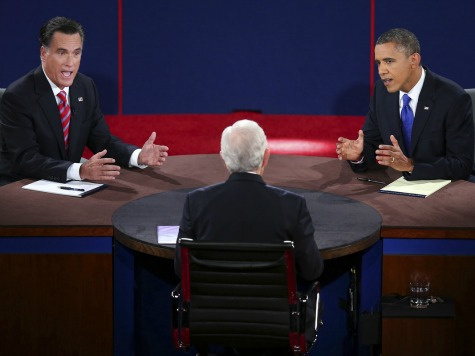Editorial
No Dramatic Change in US Foreign Policy

Two weeks before the US presidential election, Barack Obama and the Republican candidate, Mitt Romney, held their final debate on Monday night. The debate was designed to deal with issues related to foreign affairs. However, both candidates, particularly Romney, raised domestic issues in the course of the debate in order to score political points.
As expected and as different polls taken after the debate showed, Obama was the winner of the debate, mainly because most Americans believe that current US policy, despite its shortcomings, has gotten an overall approval rate. Furthermore, Obama is much more knowledgeable than Romney on foreign affairs as the latter’s gaffes during the debate prove how inexperienced he would be as the president and commander in chief.
Despite their differences on US priorities in world affairs, Romney chose not to contradict Obama’s foreign policy on many issues including the killing of Osama bin Laden, withdrawal of US forces from Iraq and Afghanistan, and sanctions against Iran. Romney and his team know that Obama’s foreign policy record is generally acceptable to Americans and that the main issue of concern to the American people in this year’s election is the economy, hence no utility in attacking Obama in this regard, although he, at times, did criticize the President for his handling of certain foreign issues particularly US relations with Israel.
One of the main subjects raised in the debate was Iran and how the two candidates might deal with the issue of the Iranian nuclear program. Again, the positions of both contenders were not far apart. While Romney said, “a nuclear-capable Iran is unacceptable to America,” a position closer to Netanyahu’s red line, Obama cautioned, “as long as I’m the president of the United States, Iran will not get a nuclear weapon.” At the same time, both candidates’ warning to Iran on the possibility of the use of military force against it if all other avenues are exhausted was more or less the same. The most noticeable difference on Iran was the response Romney and Obama gave when they were asked about the most important security threat to the US. Romney identified Iran as the most severe security threat facing America while Obama called it terrorism and terrorist groups.
The third presidential debate may not be considered instrumental for most undecided voters, particularly in swing states. However, for the international community, the message of the last debate was clear. Although Romney and Obama may differ on certain foreign policy issues, the overall foreign policy direction of the United States will not change during the next four years. As a centrist in the Republican Party, Mitt Romney would follow a pragmatist foreign policy not similar to that of George W. Bush and neo-conservatives surrounding him. As for Obama, he seems to want to continue with his current policies even with a freer hand because of the fact that he would not be worried about reelection in his second term as the US president.

